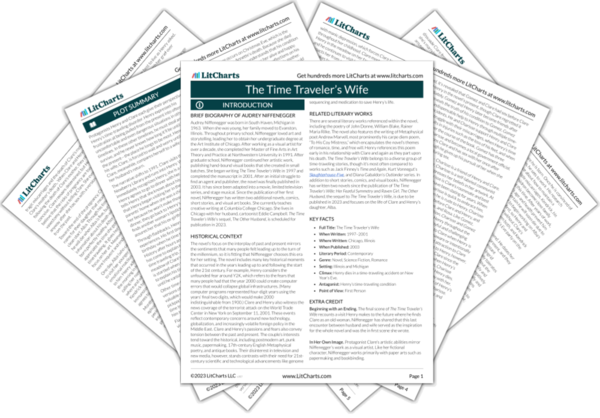This portion of Clare’s account of her childhood shows not only how much her relationship with Henry shifted over the years, but also how those changes affected them differently. Clare grows up in a traditional chronological manner, sexually maturing as she ages. However, Henry refuses to bend to her desire both as a moral choice (since she is younger than the legal age of consent) and to maintain a boundary between the two of them while they are living in different times. Clare also provides more information about her family dynamic, especially her relationship with her mother. Nell’s, Etta’s, and Peter’s roles in the household demonstrate the Abshire family’s wealth and traditional values—both of which were not part of Henry’s upbringing, as his comment about Clare being too good for him suggests.
